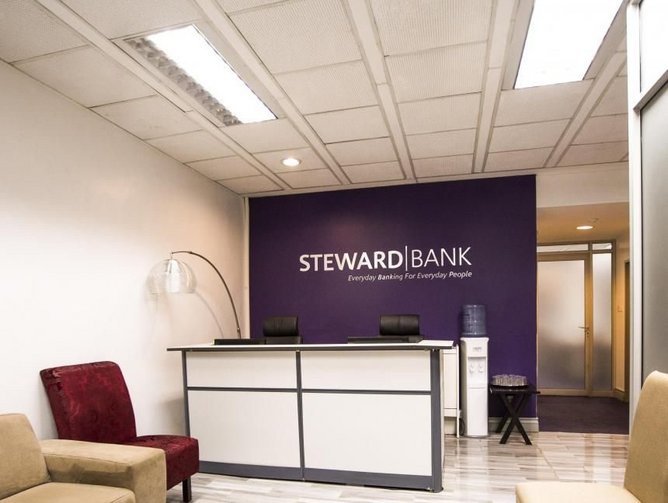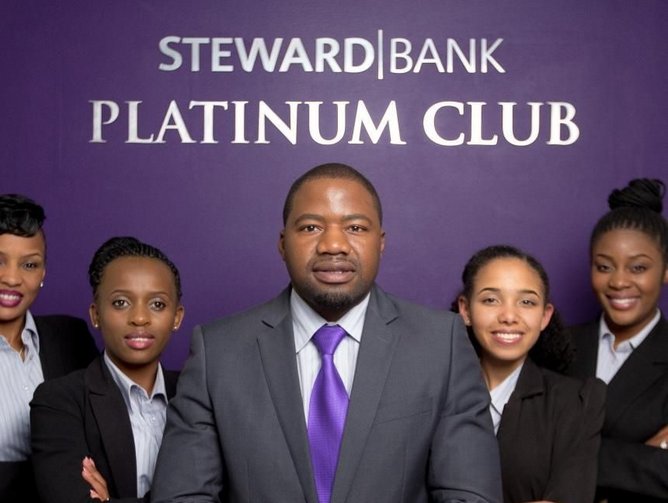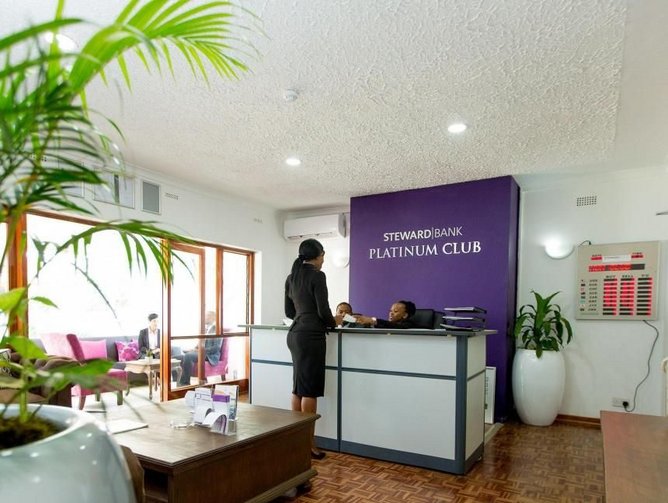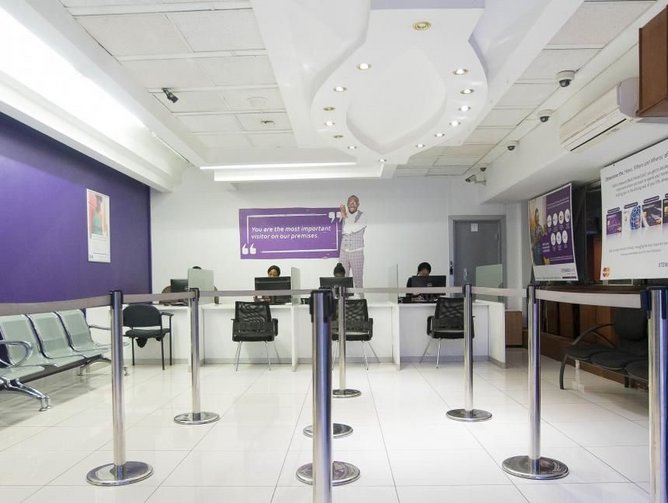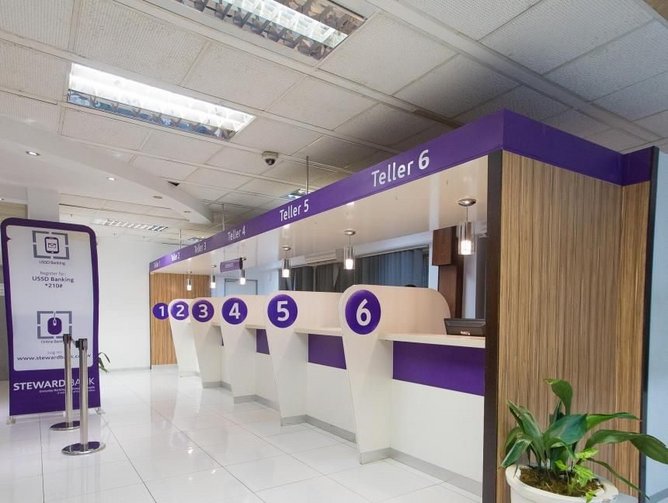Steward Bank: Promoting financial inclusion across the African banking industry
Headquartered in Mauritius, with a foothold in South Africa, Burundi, Lesotho and Botswana, Steward Bank has revolutionised the way in which consumers engage with the banking sector.
As African nations have increasingly moved away from or skipped over traditional financial institutions, Steward Bank has developed its services in alignment with the country’s migration towards mobile platforms and digital tools. With over 1.5mn customers utilising its mobile platform, EcoCash, it is clear to see that they are now placing trust in new technologies.
With up to 80% of transactions undertaken through Steward Bank’s mobile banking app, Square, customers are now also able to utilise mobile wallets to store currency, further highlighting this shift towards digitally-led financial solutions.
“Zimbabwe is a country of approximately 18mn people. About 6mn of them are hooked onto the EcoCash platform which is controlled by the Econet Group. We wanted to tap into those people who were using mobile wallets and provide them with a banking solution that would complete the loop in providing financial services,” explains Steward Bank’s Chief Executive Officer, Dr. Lance Mambondiani.
“Our idea is always to utilise data, information, and the synergies we have with Econet, and then provide financial services to those people who are hooked onto the mobile network platform.”
“We are controlling up to a quarter of the market, which gives you an idea of where we are operating,” he continues. “We command quite a significant share of transactions on mobile platform, where we are processing up to 30mn transactions a month.”
“If you look at what we were doing last year, we were doing approximately 4mn transactions a month. This highlights the growth that we are seeing in the business, which is extremely exponential. With transactions undertaken on mobile banking, we are the leading institution.”
Where fintech and banking collide
Although Steward Bank has disrupted the traditional banking sector across Africa, Mambondiani is keen to stress that the business recognises itself not as a bank, but a fintech business with a banking license. By identifying the need for African nations to develop and adopt new financial capabilities, it sought to acquire a banking license back in 2013 when it was previously the sponsor bank for EcoCash.
“We are owned by a telecom, and therefore have the capacity of reaching more people than our competitors,” explains Mambondiani. “We're playing a lot more in the innovation space so that we can see what we can do to match our technological capabilities with our banking capabilities.
“Our model and main interest has always been to simplify banking and guarantee financial inclusion when providing solutions that are relevant to Africa, for instance, Zimbabwe, which is market we're serving.”
Financially inclusive services
Providing financial solutions which are cheaper and more accessible for all has been a significant driver for Steward Bank. Its decision to introduce free banking is one such example which, although a small difference, has created an earthquake in the way in which banking institutions are seeking to attract and retain customers.
“Introducing free banking has allowed customers to open an account without incurring monthly service fees. It was a new phenomenon because every other bank was charging some sort of monthly fee,” explains Mambondiani.
“We also went to the Central Bank and requested that they reduce the requirements needed for opening an account. The majority of the Zimbabwe population does not necessarily live in areas where they can conveniently produce a proof of residence. Some of them are ranching, some of them mine the rural areas, and some of them mine areas where proof of residence becomes difficult to do. That was our large drive towards financial inclusion.”
With such a vast reach, Steward Bank has also worked to launch mobile services to eliminate the need for its customers to visit its branches altogether. Encompassing internet banking, mobile banking, telephone banking and wireless services, its mobile app, Square, has become an essential digital tool. Additionally, by providing credit and insurance on mobile, the business has witnessed exponential growth.
“Square is a very popular platform in the African region because a lot of people might not necessarily have access to data. All the transactions you can do on the mobile platform, you can also do on the USSD platform in Africa, which covers all the payments that you can do for schools, for utilities or just if you want to do peer to peer payments, which can also be completed through the Square app,” Mambondiani adds.
Payment revolution
In order to remain aggressive within the development of its financial services, Steward Bank has also strenuously worked to overhaul its payments infrastructure. The recent launch of its point of sales system, Kwenga, has seen Steward Bank provide payment capabilities to SMEs and roadside shops in order to address some of the country’s cash challenges and support local communities.
“One of the things we identified was that most of the payments solutions around were for post machines, or when taking payment, situated largely within big retailers and merchants,” observes Mambondiani.
“We wanted to offer a solution straight to vendors to pay for selling tomatoes on the side of the road, for example. We are currently allowing up to five traders to share one machine, as we're utilising an app which we have built, where the device will simply communicate with a trader’s account and enable more people to take payments.”
Unlocking value
Customer feedback has therefore been imperative to the development of new products and services at the bank. Collaborating with taxi drivers in the creation of Kwenga, for example, has been essential in developing products and services to address gaps in the market.
“The second thing that we're doing is offering microloans to traders who are using the portal, because we can see the value of the transactions that they are doing,” notes Mambondiani. “We are providing loans on the basis of the transactions that are going through the platform.”
By continually looking at the way in which new technologies can transform the customer experience, Steward Bank is also looking at the advantages of artificial intelligence (AI). Its scheme, Facebook Banking, launched in March, will further seek to address frequent customer queries the company will receive.
“We’re trying to make sure that banking is digitised and is made relevant to the customer. Reducing friction and moving people more towards artificial intelligence will enable us to analyse the data received and look at potential areas of improvement surrounding the customer experience,” comments Mambondiani.
“AI is definitely a big part of our strategy. Our intention is to scale our number of customers from approximately half a million to around a million by the close of this financial year.”
SME engagement
Whilst Steward Bank works to tailor its services which are left sidelined by other financial institutions, it is also looking at developing its services towards the flourishing SME space.
The development of the company’s ZamaZama accounts has therefore been packaged to include all the services an emerging SME would need to succeed, whilst promoting collaboration across the board.
Built out of co-creation, Steward Bank has recognised the need to provide SMEs with tailored support on a number of areas: how they can open a bank account, build a website, address the challenges around access to market, write business plans and much more. “It’s almost like banking in a box in that we provide financial literacy,” adds Mambondiani.
“We also provide web development capabilities through Mozilla. Partnering with four other group entities within the Econet family, we looked at delivering the services which we knew SMEs wanted. We didn't want to just give SMEs a loan, we wanted to give them the tools of understanding what a balance sheet is or how to manage their resources.”
To instil positive relationships and create a constructive learning culture, SMEs are further encouraged to utilise an incubation pod at the bank. Operating every Friday, it enables SMEs to meet, share ideas and access vital expertise both through collaboration and the use of its wi-fi capabilities. However, whilst many banks would make this a service a members only venture, the service is open to all SMEs who seek to access its services and engage with like-minded individuals or groups.
The impact of globalisation
The tourism sector is impacting a number of markets – with the financial sector being no exception. Whilst Zimbabwe remains one of the biggest recipients of foreign currency, or rather of remittance from Zimbabweans who are living abroad, Steward Bank has therefore developed its services to cater to this growing market.
“We wanted to provide a solution for people to travel outside of the country and still have access to some means of payment. We've partnered with Visa and introduced the pre-paid Globe Trotter Card. It allows a customer to load their own value on it and utilise the credit,” says Mambondiani.
“You don't need to be a Steward Bank customer, and can access it through any Econet shop or Econet branch. In a bid to target up to 300,000 customers, we are now also distributing the card through some other retailers and supermarkets.”
Additionally, its partnership with World Remit has seen the bank deliver solutions to up to 4mn Zimbabwean citizens who are situated outside the country. By enabling them to tap into their remittance, they will remain a significant contributor to the country’s foreign currency inflow.
“World Remit is a very critical partner to us in targeting a number of Zimbabweans in various markets,” explains Mambondiani.
“World Remit is operating in a number of countries, but also terminates into a number of different countries. So, Zimbabweans can, in the UK for example, utilise World Remit to send money back home. And we use our last mile to make sure that money reaches to beneficiary much quicker.”
In order to further increase its reach, money will either terminate into a Steward Bank account, which will then be collected at one of its branches, or it can be terminated into an EcoCash wallet, which automatically gives Steward Bank access to approximately 5mn customers in Zimbabwe.
“I think that is the appeal for us, that anybody who is using World Remit can use either our EcoCash platform or they use the Steward Bank’s platforms and engines,” he adds.
Increased accessibility
Through overhauling its entire delivery network and its core banking systems, Steward Bank has worked to build a fintech structure that has the capacity to address and serve its customers.
“We're looking into the region to see what we can do to further expand digital banking services across Africa. One of the things that we've identified is that the challenges in Africa or in Europe are almost the same,” comments Mambondiani. “We are currently in the process of looking at partnerships across Africa, in the form of establishing green fields or maybe a joint venture (JV) with various financial institutions in other African countries.
“We’re a digital bank, and want to deliver banking in a manner which is cheaper, easier and a lot more accessible. Our focus in doing so is using mobile as the centre of our product delivery. We are only one of three institutions that we know in the world that is fully owned by an MNO, only one of two banks in the world. Others are in the form of a JV or partnership.
“We’ve got a unique capacity of looking at banking differently and delivering it in a way that is relevant to Africa, reducing the cost of delivery because we are becoming a lot more digital.
“Lastly, we are interested in building a platform business, a platform banking system and structure, an open banking platform which allows other partners to plug into what we're doing for the benefit of our customers.
“Our intention is to fully deepen financial inclusion and, therefore, we are providing solutions which are relevant to every Zimbabwean or financial access to the mainstream banking sector in a market which was previously excluded.”
